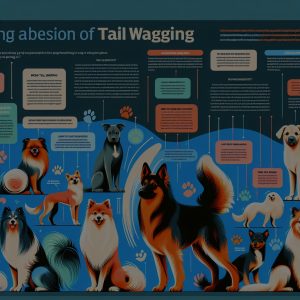
Unveiling Dog Breed Issues: A Comprehensive Guide ===
Dogs come in all shapes and sizes, each with their own unique set of traits and characteristics. However, with their diversity comes the potential for breed-specific issues. From health concerns to behavioral challenges, it is important for dog owners and enthusiasts to be aware of the potential issues associated with different breeds. In this comprehensive guide, we will explore some common dog breed issues and provide solutions and resources to help address these challenges.
Understanding Common Dog Breed Issues
Just like humans, dogs can be susceptible to certain health conditions that are more prevalent in specific breeds. For example, larger breeds like Great Danes are more prone to heart issues and joint problems, while brachycephalic breeds such as Bulldogs and Pugs may suffer from respiratory difficulties due to their shortened snouts. It is crucial for owners to research and understand the potential health issues associated with their chosen breed, as early detection and preventative measures can greatly improve a dog’s quality of life.
Apart from physical health concerns, certain breeds may also exhibit specific behavioral challenges. For instance, some herding breeds like Border Collies and Australian Shepherds may demonstrate excessive chasing or herding behaviors, which can be problematic in certain environments. Additionally, breeds with strong guarding instincts, like German Shepherds and Rottweilers, may require diligent training and socialization to prevent aggression or territorial behavior. By understanding these breed-specific issues, owners can better prepare themselves for potential challenges and address them accordingly.
Solutions and Resources for Dog Breed Challenges
Thankfully, there are numerous solutions and resources available to help owners navigate the challenges associated with specific dog breeds. One of the most effective approaches is early socialization and training. By exposing dogs to various environments, people, and other animals from an early age, owners can help prevent unwanted behaviors and promote a well-rounded, confident canine companion. Professional dog trainers and behaviorists can offer guidance and tailored training plans to address specific breed-related issues.
Additionally, proactive healthcare is essential to combating breed-specific health concerns. Regular check-ups with a trusted veterinarian, appropriate vaccinations, and a balanced diet can go a long way in maintaining a dog’s overall well-being. In some cases, genetic testing may also be recommended to identify potential health risks specific to certain breeds. By working closely with veterinarians and staying informed about the latest research and advancements, owners can stay one step ahead and provide the best care for their beloved furry friends.
Understanding common dog breed issues is crucial for any responsible pet owner. By recognizing and addressing potential health and behavioral challenges, owners can provide a safe and nurturing environment for their dogs. With the help of professional resources and proactive measures, breed-specific issues can be effectively managed, ensuring a happy and healthy life for our four-legged companions. Remember, knowledge is key when it comes to providing the best possible care for our beloved dogs.
Speaking of dog breeds, you might be interested in exploring some specific breeds and their unique characteristics. For instance, the [Australian Shepherd](https://en.wikipedia.org/wiki/Australian_Shepherd) is known for its intelligence and agility, making it a favorite among active dog owners. On the other hand, the [German Shepherd](https://en.wikipedia.org/wiki/German_Shepherd) is celebrated for its loyalty and versatility, often serving important roles in police and military work. Additionally, the [Rottweiler](https://en.wikipedia.org/wiki/Rottweiler) is renowned for its strength and protective instincts, requiring diligent training and socialization to reach its full potential. By understanding the unique traits and potential challenges associated with these breeds, you can be better prepared to provide the best care for your canine companion.










